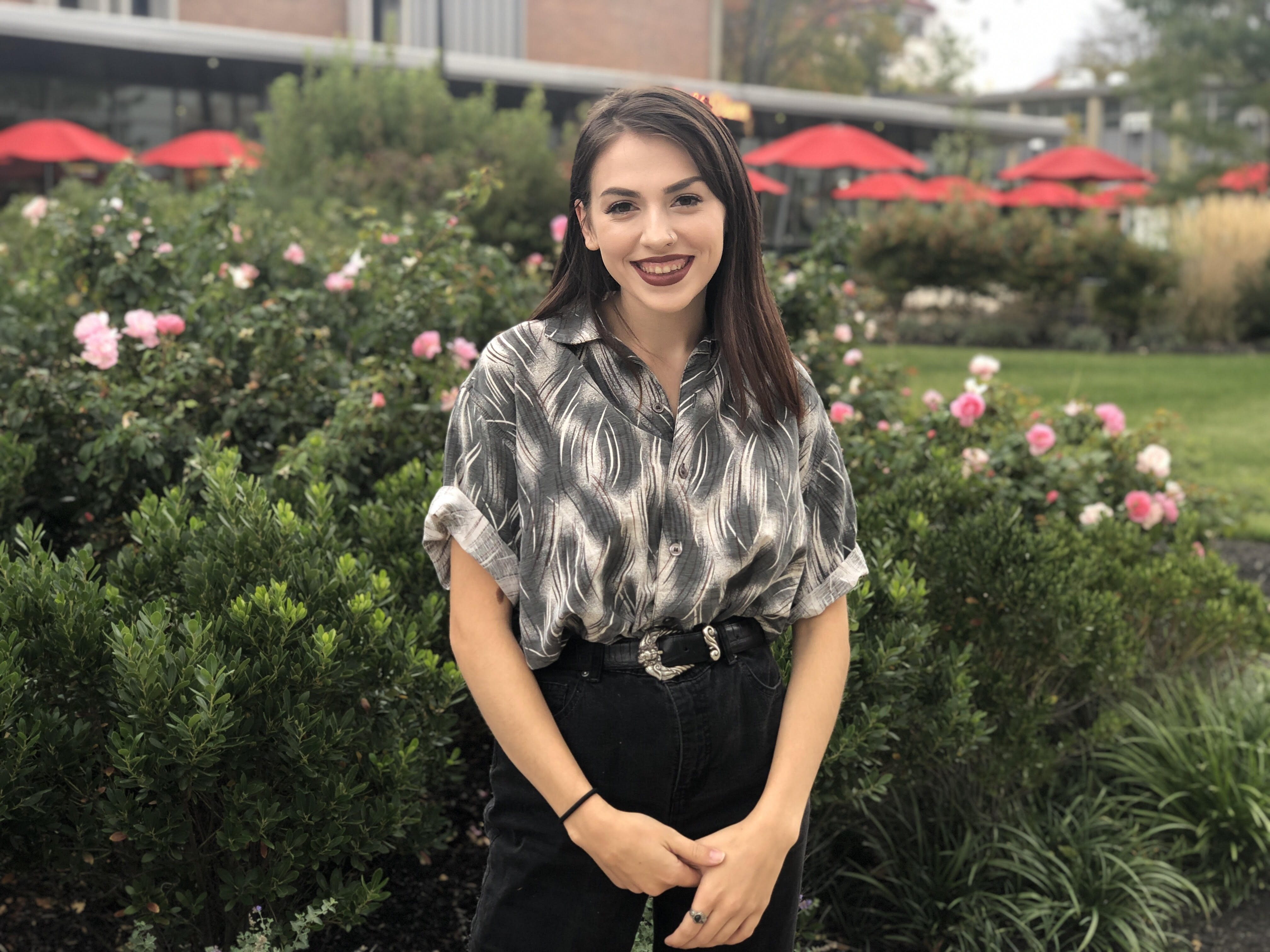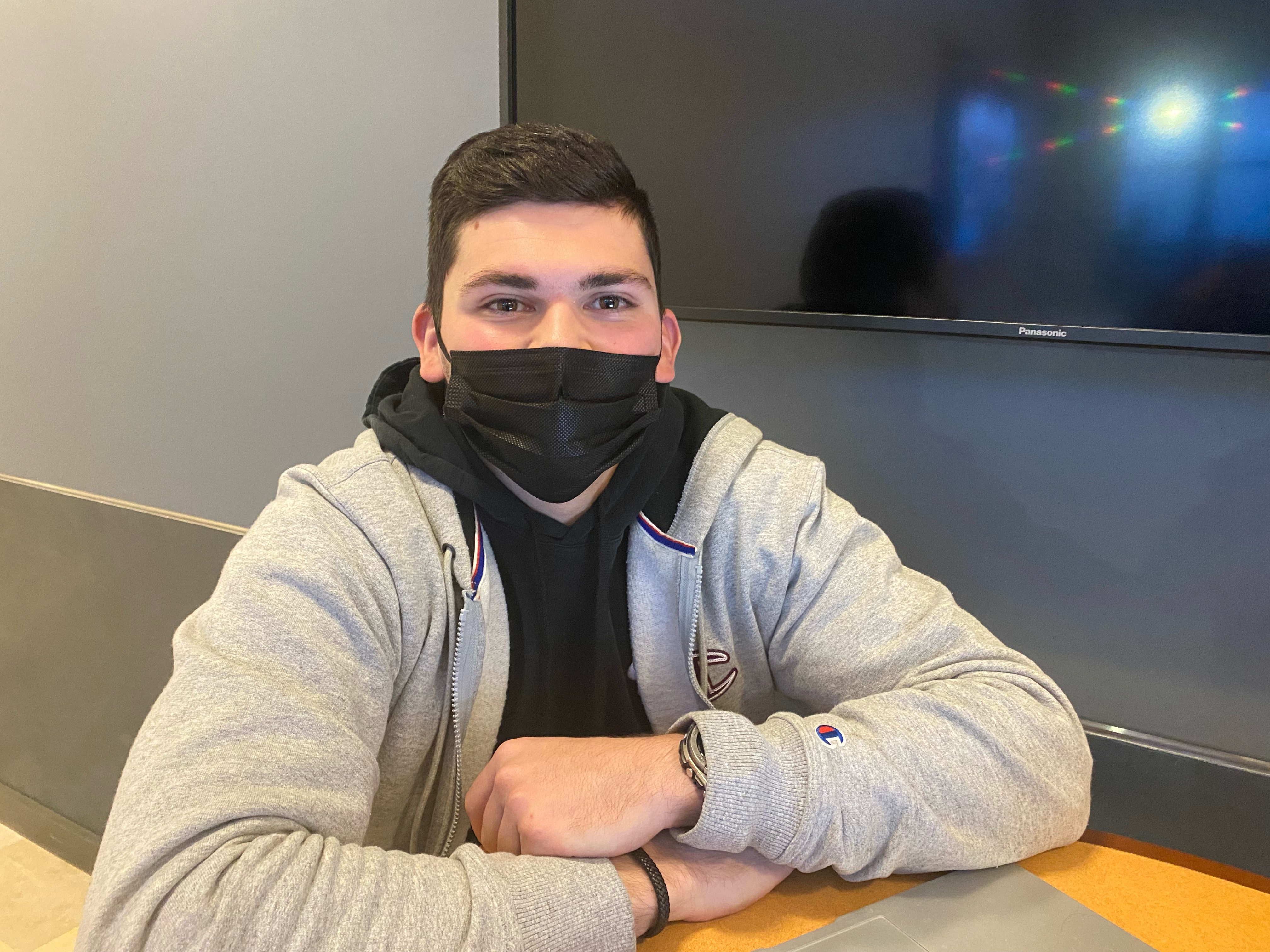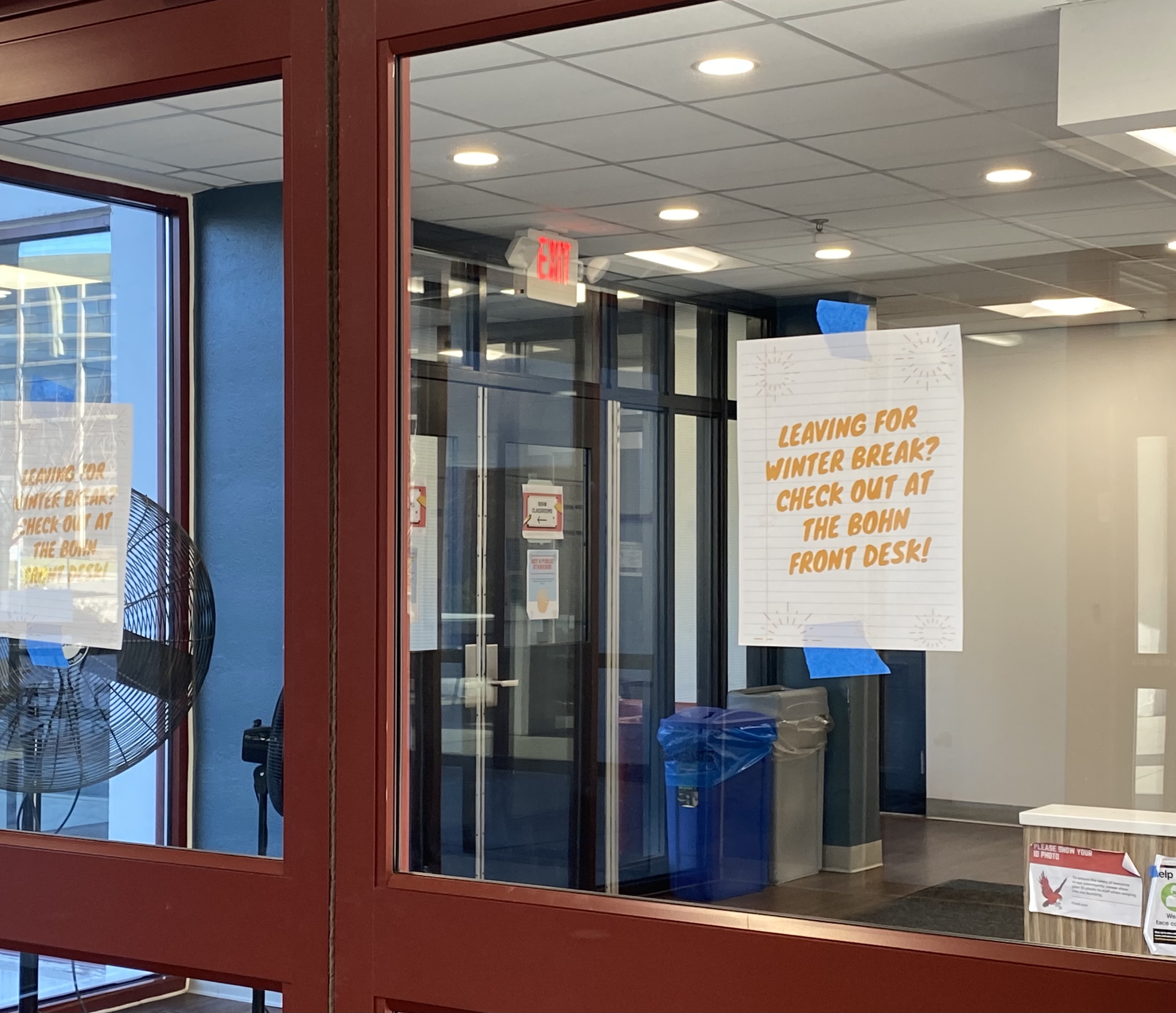Winter housing is back to being cost-free after Montclair State University charged students who wished to remain in residence halls during the extended 2020-2021 winter break.
Only 150 students decided to remain in their campus housing during winter break last year, as many students turned down the option once hearing about the cost, which was a total of $700 for a double room and $900 for a single room.

Charlee Reiff, a 2021 graduate, decided against winter housing last year due to the cost.
Sam Nungesser | The Montclarion
Charlee Reiff, a 2021 graduate with a bachelor’s in filmmaking, was one of those students.
“Though I wanted to do winter housing, the cost was a bit outrageous,” Reiff said. “In previous years, we did not have to pay to stay on campus over winter break, so I did find it upsetting.”
According to the 2020 financial statements, the university lost $9 million in room and board, with $5 million of it pertaining to housing refunds given to 4,000 students at the onset of the coronavirus (COVID-19) pandemic. Though questions arose about whether winter housing costs were a way to make up for the lost revenue, Jeanine Stroh, the executive director of residence life, says there was a different reason.
“Our goal last year was residential safety for our students,” Stroh said. “We didn’t want students that didn’t need to stay on campus to remain if they had a place to go due to [COVID-19]. The decision was made to charge because it was a unique year.”
Although Stroh said students received financial help from the CARES Act, Dylan D’Ambrosio, a senior physical education major, believes the university should have never charged for winter housing since it may have turned away students who genuinely needed it.

Dylan D’Ambrosio, a senior physical education major, believes the university should not have charged for winter housing last year.
Sam Nungesser | The Montclarion
“A lot of people may not live the closest [to the university], and it may be an inconvenience for them to go home for only one month,” D’Ambrosio said. “You don’t know what their home lives are like.”
D’Ambrosio went on to argue that students were already paying enough for room and board.
“I feel like [it was] unnecessary to charge someone money for literally one extra month of housing when they [were] already paying thousands of dollars to live there for the fall and then probably the spring as well,” D’Ambrosio said.

Although Emma Rowe, a freshman psychology major, was not a student at Montclair State last year, she understands why the university would charge for winter housing.
Sam Nungesser | The Montclarion
However, Emma Rowe, a freshman psychology major, thought otherwise. Despite the fact that she is a freshman and this year is her first year living on campus, she understood why the university would charge for winter housing in a pandemic year.
“I think it makes sense that they would do that because it helps get people out, which is what the point was,” Rowe said. “Because I know personally if they charged me, that would send me home. I guess that makes sense.”
As the residence halls slowly return to normal, moving from 60% occupancy last year to 88% occupancy this year, the good news is that the university will not be charging for winter housing again this year, and at least 1,100 students, including Matthew Dapiran, a senior marketing major, have already reserved theirs.

Matthew Dapiran, a senior marketing major, reserved winter housing for this year.
Photo courtesy of Matthew Dapiran
“I feel very happy about this because as someone who struggled with their housing this past semester, it definitely helps,” Dapiran said. “With that being said, I needed winter housing because I work up here for the New Jersey Devils and the Recreation Center. I live two hours away, so it will make my life a little easier so I don’t have to commute all the time.”
Even though the pandemic is constantly changing and bringing new challenges, Stroh said it has been a learning experience.
“It has been a learning experience working through the [COVID-19] pandemic, and we have learned how resilient our students can be,” Stroh said. “We have also learned how we have to be adaptable to many different situations as they continue to change.”
More information on how to apply for winter housing can be found on the university’s residence life website. The deadline to apply is Dec. 17.



